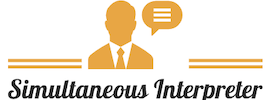Do you want to become a translator? Or are you looking for a language services provider? What are the key skills to look for up close?
Is it enough to know two languages and have a computer to provide the best translation services? Maybe not… becoming a ninja translator and translating professional documents is not as easy as you think! Find below some essentials skills to succeed as a professional translator.

Bilingual
This is a fundamental requirement for all and any kind of professional translation services. It covers the underlying systems of knowledge and skills necessary to communicate in two languages. These include pragmatic, socio-linguistic, textual and lexical-grammatical knowledge.
Specialized in a translation field
Particularly necessary in the world of technical translations, this involves the general knowledge that the translator should have of the world at large; and in particular of the specific fields relating to the text to be translated. This includes encyclopedic and thematic knowledge of the two cultures involved in the translation.
Knows all about translation rules
This is about the talent and experience accumulated by a translator, either during training or work experience, as befits their profession. It covers two types of knowledge:
- The professional practice of translation itself;
- An understanding of the principles governing translation (unit types, the processes required, methods and approaches applied, types of problems, etc.).
Use CAT(Computer-Assisted Translation) tools
As the name implies, this refers to the professional translator’s ability to use the instruments available in order to carry out their task. In practice, this includes the knowledge and skills related to the use of documentation sources, information and communication technologies applied to translation (dictionaries, encyclopedias, grammar rules, stylistic references, parallel texts, corpus, search engines…).
A well-organized person
This is related to the translator’s skill in the temporal, administrative and pragmatic planning of the project, which is a pre-requisite for effective translation project management. It ensures the effectiveness of the translation process and solves any problems as they arise, allowing a translation project to be developed and planned from start to finish. It involves evaluating its evolution and partial results in view of the ultimate goal, and helps to identify the best approaches which need to be applied to achieve this.
To this we should add some psychophysiological aspects, such as cognitive abilities (memory, perception, attention, emotion), attitudinal components (intellectual curiosity, perseverance, rigor, critical thinking, knowledge, confidence, motivation) and certain skills (creativity, logic, analysis, ability to synthesize). Note that if your translation company says that its translators are qualified, you should ensure that they each have all the subcompetences mentioned above. Is this really the case?



















